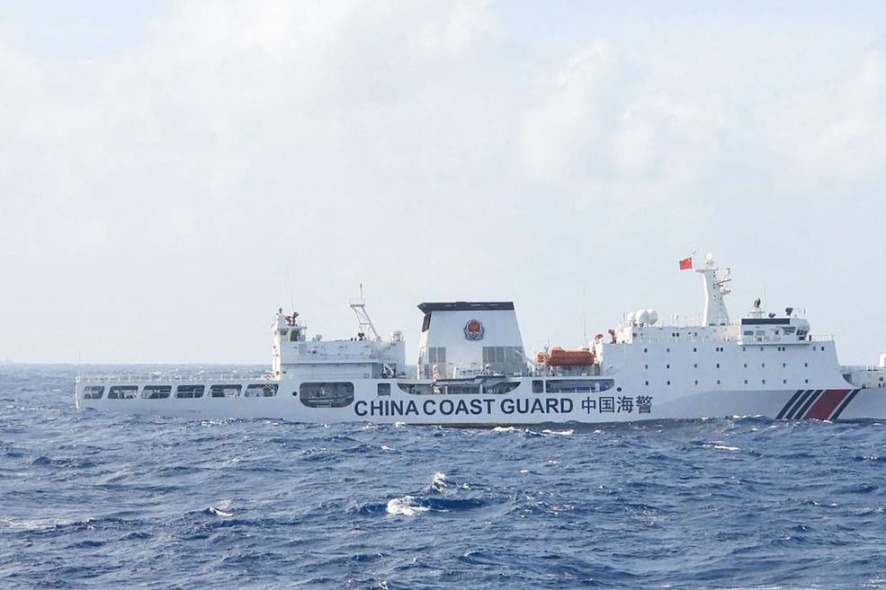ASEAN banking on cross-border financial services

Summit is expected to advance partnership for sustainability through inclusive growth
The Association of Southeast Asian Nations is pushing ahead for greater economic growth and financial stability, with more emphasis being placed on localized cross-border financial services to improve connectivity, according to analysts.
The use of local currencies to enhance trade and direct investment flows in the region was given a boost with the signing of letters of intent last week between the Philippine central bank and the central banks of Indonesia, Malaysia and Thailand, to initiate discussions on establishing a currency settlement framework.
Leading officials of these nations appear to have taken a "step forward toward greater harmonization between the different financial and monetary systems within ASEAN", said Alice de Jonge, senior lecturer with the Monash Business School at Monash University in Melbourne.
The agreement was part of results from a two-day meeting in Chiang Rai, northern Thailand, by ASEAN finance ministers and central bank governors. A joint statement on Friday at its conclusion pointed to the development of a regional framework to integrate real-time retail payments that can lower the cost of services and encourage local currency use in cross-border transactions.
"The initiatives announced should improve coordination and cross-border transactions and business in the region, as well as potentially facilitating smoother financial operations related to projects along the China-proposed Belt and Road Initiative within the region," De Jonge said.
Rajiv Biswas, Asia-Pacific chief economist with global research firm IHS Markit, said that by starting talks toward a local currency settlement framework, the nations are making progress on establishing an ASEAN system of local currency payments and swaps.
The Chiang Rai meeting endorsed Thailand's theme for this year's ASEAN summit - Advancing Partnership for Sustainability - and its goal of achieving this through inclusive and sustainable growth. Thailand is this year's ASEAN chair.
Also signed was the Protocol to Implement the Eighth Package of Commitments on Financial Services under the ASEAN framework agreement on services, which indicated "important steps for further financial services liberalization within ASEAN", according to Biswas.
Eight ASEAN nations have also reached an agreement on ASEAN payment connectivity, which will help to reduce cross-border payments costs and improve payment efficiency for foreign worker remittances, as well as payments by tourists and companies.
"This will be an important benefit for millions of ASEAN migrant workers employed in other ASEAN countries. This will help to reduce the costs of cross-border payments significantly for the ASEAN region over the long-term once fully implemented," Biswas said.
He noted that the new bilateral agreements are reached under the ASEAN banking integration framework and mark progress toward the ASEAN economic community goals for financial integration.
The ministers at Chiang Rai acknowledged the "notable progress" in the liberalization of ASEAN's banking, financial, insurance and capital markets sectors.
"We also underscore the importance of the chair's proposed initiatives to enhance connectivity, sustainability and resilience as key pillars of strengthening financial cooperation this year," their joint statement said.
The region's economy recorded 5.1 percent growth last year, driven by strong domestic demand and investments.
The ASEAN ministers will also be working with the Asian Development Bank to promote the green bond market, which is set to support investors and businesses that aim to raise funds for environmentally friendly projects in the region. The ADB has urged ASEAN to deepen its customs cooperation in order to promote more trade and investment.
Biswas said the move toward a green bond market is significant, as this is now becoming more common around the world.
Globally, the development of the green bond market has increased rapidly as countries put a high priority on sustainable economic development, notably in the area of power generation to comply with their commitments to the United Nations climate change agreement.
"For ASEAN, the development of a green bond market to catalyze financing of infrastructure investment for sustainable development in areas such as power generation is therefore of critical importance in the long term," Biswas said.
The region will also implement the ASEAN Single Window customs clearance initiative for sharing information and facilitating trade and investment.
"The ASEAN member nations plan to establish an ASEAN Single Window to facilitate regional customs payments, which will speed up customs clearance administrative processes and reduce nontariff barriers to trade among ASEAN countries," he said.

































